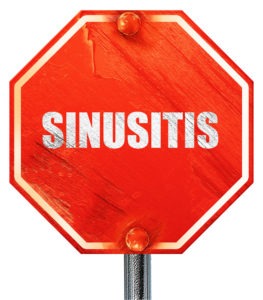Getting sinus surgery can be a big decision between you and your doctor. Before you make that decision, there is much to consider.
What Your Options Are for Chronic Sinusitis

You have two options if you suffer from chronic sinusitis:
- Undergo a procedure or surgery
- Continue to take medications or use other forms of treatment for the rest of your life
Many people do not choose to have a definitive procedure or surgery. They decide to manage their chronic sinusitis with medications and other types of treatments, like allergy shots. This is not the best choice for everyone, though.
People who suffer from multiple infections because the flow of mucous is blocked anatomically should consider surgery. By removing the blockages and making the sinus openings bigger, the sinuses will drain, preventing infections.
Is Surgery a Good Choice?
One way to decide if sinus surgery is a good choice is having an in-office sinus CT scan performed on your sinuses to see if there are structural issues obstructing the flow of the nose and sinuses from draining properly A CT sinus scan and an in-office nasal endoscopy are indicated after failed maximum medical treatment (i.e. sinus rinses, decongestants, antihistamines and oral antibiotics). This form of treatment involves taking medications and performing home care to eliminate the infection and reduce swelling in the sinuses. This helps the doctor identify the cause of the infection, such as nasal polyps or a deviated septum or enlarge turbinates keeping the sinuses from draining properly.
Patients who have a sinus infection caused by fungus or polyps may also be good candidates for surgery. Antibiotics do not treat infections caused by fungus or polyps. Surgery can correct the problem once and for all in these cases.
Although rare, in-office balloon sinuplasty or outpatient sinus surgery is a good choice if the infection spreads beyond the sinuses, lasts longer than 4 weeks, or is happening more than 3-4x annually requiring doctor or urgent care visits.
When You Should NOT Get Sinus Surgery
Some reasons you should NOT get sinus surgery include:
- You do not have chronic or recurrent sinus infections
- You do not experience chronic congestion or facial/sinus pain/pressure
- Medications and other forms of at-home treatment reduce or relieve the symptoms from sinusitis well.
Medications such as pain relievers (acetaminophen or ibuprofen), steroid nasal sprays (Flonase, Nasacort, etc.) or decongestant nasal sprays or pills, antibiotics, and mucolytics (guaifenesin) can help relieve the discomfort sinusitis can cause. At-home treatment may include drinking a lot of water to keep the mucus thin, applying warm compresses multiple times a day, using a humidifier, performing nasal rinses, or using saltwater nasal drops.
Serious but rare risks of sinus surgery include heavy bleeding, injury to the eye area, meningitis (inflammation of the tissue that covers the brain), fluid leakage around the brain, and brain injury.
Minor risks of surgery may include scar tissue, bleeding, bruising, swelling, and a decrease in sense of smell.
Why People Decide to Have Surgery
Sinus doctors and surgeons give the choice of having an in-office balloon sinuplasty or outpatient sinus surgery to patients. Most patients decide to have it because they want long-lasting and definitive relief from dealing with regular congestion, pain, and discomfort from their sinuses without taking medication and utilizing at-home treatments.
After these procedures, many people can live life without the burden of dealing with their sinus problems. They can breathe deeply easily and they no longer have to worry about going to the doctors for yet another injection. This gives them more time in their life to do the things they enjoy and actually enjoy those things when they do them without having to deal with their sinus issues.
Other benefits of these permanent and life-changing procedures may include:
- It improves sinus symptoms like sinus headaches, nasal congestion, postnasal drip and recurrent sinus infections permanently in about 90 out of 100 people.
- It may eliminate bad breath caused by sinus infections.
- Long-term use of antibiotics can cause bad side effects, such as allergic reactions, nausea, and diarrhea. Surgery can help reduce the number of antibiotics used.
Why People Decide NOT to Undergo Surgery
Many people decide not to have surgery because they know there is a risk that their sinus problems won’t be resolved. There are people who either have to continue to take medications or use at-home treatments despite the surgery.
For some people, the sinus issues will only stay away for a few months before returning. They would need another surgery to correct it again. There’s no way to know if this will happen until the surgery has been performed.
Other reasons people elect not to have surgery are:
- They don’t want to or can’t take time away from work for the surgery and recovery.
- Surgery scares them.
- Medications and at-home treatment work well.
Thankfully many of these reservations are eliminated when having sinus surgery or procedures by world-renowned expert, Dr. Alen Cohen at the Southern California Sinus Institute.
Contact Us for Sinusitis Relief
Sinus surgery or in-office balloon dilation procedures can be an effective way to treat sinusitis. If you’re suffering from recurrent sinus infections and discomfort, contact Southern California Sinus Institute. We help many patients who are suffering from chronic sinusitis find relief with or without surgery. Dr. Alen Cohen, M.D., F.A.C.S. is recognized as being the Best Sinus Surgeon in Los Angeles by various organizations like Castle-Connelly. He is a Board-Certified ENT/Head and Neck Surgeon and a renowned expert in the field of Nasal and Sinus Surgery. Call us today for an appointment at 818-888-7878.


